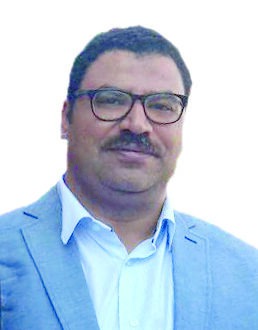With only a few days before its annual donors’ conference, the UN Relief and Works Agency for Palestine Refugees in the Near East (UNRWA) is grappling with mounting pressures that stem not only from the difficult environments in which it supports more than 5 million Palestinian refugees, but also from ongoing attempts to politicise its role.
Throughout its history, UNRWA, which was established by the UN General Assembly in 1949 with a mandate to provide assistance and protection to Palestinian refugees in education, healthcare, relief, and social services, has encountered several attempts by various parties to politicise and sometimes weaponise its role.
In many cases, its keenness to maintain its neutrality had deprived it of valuable resources, hampering its efforts to take care of helpless refugees, some of whom live in their occupied lands or increasingly volatile areas in countries like Syria and Lebanon.
One of the latest attacks on the organisation was launched by some rights groups, agreeing with Israeli allegations and accusations that teachers and other agency employees were inciting violence, praising Adolf Hitler, and propagating antisemitic conspiracy theories.
Despite logical defense by the organisation, which uses host country curricula in line with best practices in refugee education, the allegations have gained weight in some governments and organisations including the European Parliament.
The organisation elaborated that it enriches the curricula by teaching human rights, conflict resolution, tolerance, and gender equality in all schools. It also tries to instill in students a deep sense of democratic values through the world-renowned UNRWA student parliament.
For the disappointment of the organisation critics, a recent study authored by the World Bank and UNHCR argues that the UNRWA education programme is the best value for money and its students are outperforming their local counterparts by one year of learning.
The current campaign brings to mind one of the most serious attempts to jeopardise the role of the agency when the Trump Administration, in 2018, cut $300 million from its annual contribution to UNRWA. The aim was to punish the Palestinians for criticising the United States’ recognition of Jerusalem as Israel’s capital and force them to accept the Trump’s ‘Deal of the Century’ peace plan.
Despite attempts at the time by some donors like Canada, Qatar, Saudi Arabia, and the United Arab Emirates to offset some of the money withheld by the US, UNRWA had to reduce services, which prompted protests by Palestinian refugees in Gaza, Syria, and Lebanon.
Despite the breakthrough reached by the Biden administration, which restored money to UNRWA, the organisation is still under attack, which could deprive it of vital finances it needs to face an existential catastrophe, as its chief called it.
According to UNRWA Chief Philippe Lazzarini, failing to secure $800m at the coming donor conference in Brussels would stymie a number of UNRWA programmes, including the care provided to 550,000 children in schools and 2.8 million people receiving health benefits.
However, with a looming international economic crisis, some donors may find such allegations a good excuse to cut their contributions. Just as the United Kingdom did when it cut its contributions by more than half, from £42.5 million in 2020 to £20.8 million in 2021.
Nevertheless, before thinking in such a way, the international community should realise that any service reductions by UNRWA would hurt people who are not even citizens of any nation.
Moreover, when UNRWA cuts back services in the impoverished refugee camps in Lebanon, Jordan, Syria, the West Bank, and Gaza, what forces on the ground can do its job.
With the international community unable to reach a solution for one of the oldest world conflicts to end the Palestinian refugees’ misery for good, at least they should keep such a lifeline uninterrupted.






Discussion about this post